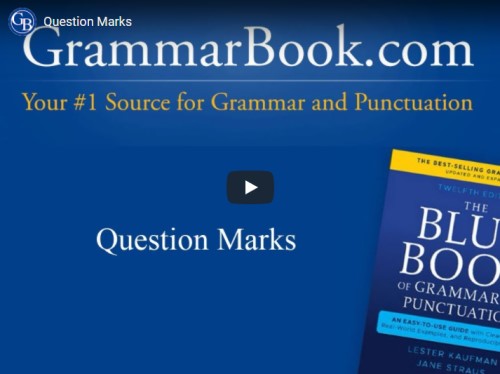|
An infinitive is the root form of a verb before it is conjugated. It contains the main verb and the word "to": to write, to study, to wish, to walk. An infinitive is split when something separates the main verb from its "to."
Few grammatical items have received a rougher rap. As with starting a sentence with a conjunction or ending it in a preposition, split infinitives have received frowns and red-pen corrections for many years. In The Elements of Style, Strunk and White suggest that the disdain for them began in the fourteenth century.
As we'll see, the split-infinitive debate has equally valid sides depending on the application. There are times when the split infinitive serves writing well, and there are others when the naysayers about its use are correct.
Is It OK to Split an Infinitive?
An infinitive can be split by a single word or a phrase.
Examples
to passionately write
to with a great dedication study
to briskly and purposefully walk |
However, from these examples alone, you can probably start to determine why the split infinitive is questioned and viewed as undesirable form. Let's look at the same infinitive phrases when they are not split:
to write passionately
to study with a great dedication
to walk briskly and purposefully |
Many of us can agree that these are improvements. Strunk and White recommend avoiding split infinitives unless we wish or need to emphasize the splitting element. Compare each pair of sentences:
William picked up his quill and began to passionately write.
William picked up his quill and began to write passionately.
Jacquin refused to even remotely listen to what Wanda had to say.
Jacquin refused to listen even remotely to what Wanda had to say. |
As these examples suggest, whether to split an infinitive can often be a matter of the writer's ear. Which sentence sounds better when pouring forth from you as a writer? The main thing to remember is that either format is acceptable: The infinitive can be split.
Some split infinitives simply have to remain as written:
The park ranger told the staff to all but stop trying to herd the cats.
Serena said for us to not so much as consider the opening offer. |
Also note the nuances in meaning when we do and do not split an infinitive:
The plane changed course to swiftly avoid the storm.
The plane changed course swiftly to avoid the storm.
The plane changed course to avoid the storm swiftly. |
The first and third sentences are related, and some might argue that the third resolves the split infinitive in the first. However, once again whether to split becomes a question of emphasis. The first sentence has a greater sense of urgency than the third.
Note the nuances in this sentence pair:
Randall's biggest choice was to not go.
Randall's biggest choice was not to go. |
Let's look at one more example in which it is okay to split an infinitive:
No matter how hard I try, I cannot bring myself to truly believe him.
No matter how hard I try, I cannot bring myself to believe him truly. |
In this case, splitting the infinitive sounds more natural, and not doing so sounds stilted.
When Not to Split Infinitives
There are instances in which splitting an infinitive is inarguably weaker form. This is particularly true as the separating element becomes longer:
You should start to, if you really want to pass the exam, study now.
The alien's extra leg allows it to with extraordinary balance and strength stand on almost anything. |
Both sentences will benefit by not splitting the infinitive:
If you really want to pass the exam, you should start to study now.
The alien's extra leg allows it to stand on almost anything with extraordinary balance and strength. |
Watch too for occasions in which the adverb splitting an infinitive creates a tautology:
Beatrice had to urgently rush to catch the bus.
Carinna stopped to loudly yell at the speeding car. |
To rush is to be urgent; to yell is to be loud. Neither adverb is needed.
As we continue to grow and improve as writers of American English, we will use split infinitives when they serve our writing and avoid them when they do not.
Related Topics
Split Infinitives: To Split or Not To Split
Infinitives
| 




